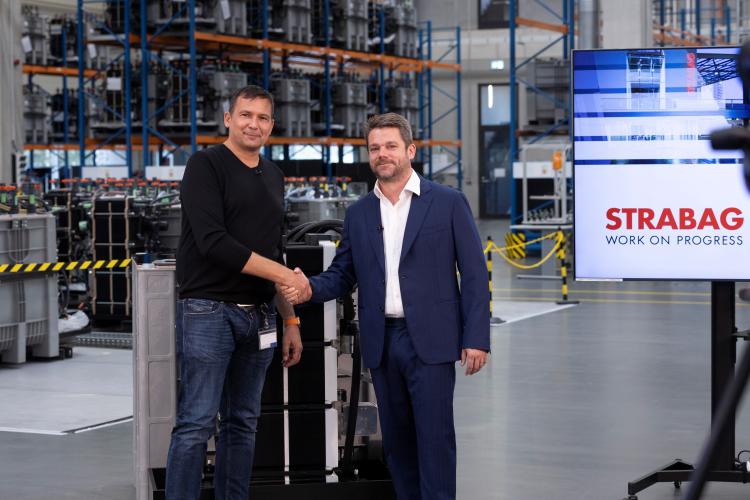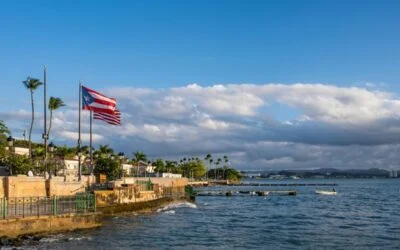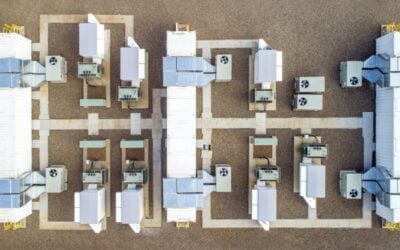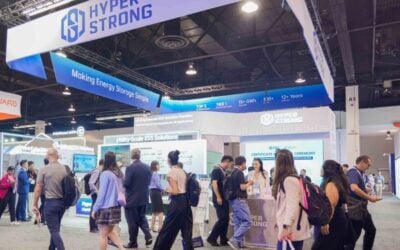
Germany-headquartered organic flow battery company CMBlu has secured €100 million (US$107 million) from technology and construction firm Strabag.
Alongside the equity investment, Strabag and CMBlu have also signed a preferred partnership agreement.
Combining CMBlu’s organic flow battery technology and Strabag’s construction and infrastructure expertise opens up opportunities for industrial companies, utilities and grid operators to build large-scale projects using the tech, the companies said.
CMBlu’s ‘Organic SolidFlow’ technology is a redox flow battery which uses an electrolyte sourced from organic materials, which it said are cost-effective, environmentally friendly and secure. Most flow battery companies use vanadium as an electrolyte.
Try Premium for just $1
- Full premium access for the first month at only $1
- Converts to an annual rate after 30 days unless cancelled
- Cancel anytime during the trial period
Premium Benefits
- Expert industry analysis and interviews
- Digital access to PV Tech Power journal
- Exclusive event discounts
Or get the full Premium subscription right away
Or continue reading this article for free
The company has to-date mostly deployed projects in the commercial and industrial (C&I) sector and has received its first orders in the US this year. Last month, it won a 5MW/50MWh order from a utility in Arizona, which followed on from its first order in the market in February.
The first commercial project to use its technology at scale was commissioned in July this year, at a wind and solar park in Austria.
Dr. Peter Geigle, founder and CEO of CMBlu Energy, commented: “As developers and producers, we can now invest into the construction and expansion of our production facilities. We will especially profit from the broad experience and execution power STRABAG has in large infrastructure projects.”
Klemens Haselsteiner, CEO of Strabag, added: “With our investment in CMBlu Energy, we are breaking new ground in the construction industry. In order to reach one of the most important goals in our company history – becoming climate-neutral by 2040 – we want to become a full-range supplier for energy services for our construction projects. Together, we will deliver large energy storage projects in a standardized construction design – “warehouses for electricity” – even faster, more efficient and easier.”
Flow batteries are one of the more commercial mature alternative technologies to lithium-ion for stationary energy storage, and providers claim that the technology has a lower levelised cost of storage (LCOS) beyond the 4-8-hour duration mark.
However, lithium-ion continues to be chosen for the largest-scale projects at that duration, partially down to commercial readiness, cost-effectiveness, performance and bankability.





